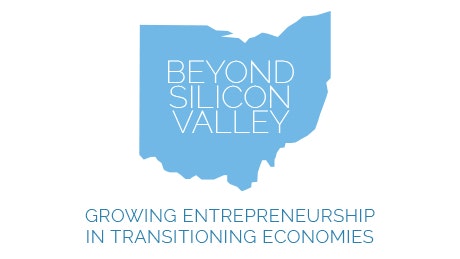Entrepreneurship
Entrepreneurship: Building Ventures and Shaping Futures
Entrepreneurship is the process of designing, launching, and running a new business, which is often initially a small business. The people who create these businesses are called entrepreneurs. At its core, entrepreneurship involves identifying an opportunity, marshaling the necessary resources—like funding, talent, and technology—and taking calculated risks to bring a vision to life. It's about creating value where none existed before, whether through innovative products, services, or solutions to societal problems.
The journey of an entrepreneur is often characterized by immense challenge and uncertainty, but also by the potential for significant reward, both financial and personal. Many are drawn to the autonomy it offers—the chance to be their own boss, set their own direction, and build something from the ground up. Others are motivated by a desire to solve a specific problem they've encountered or to disrupt established industries with novel ideas. The thrill of innovation and the satisfaction of seeing an idea materialize into a tangible enterprise are powerful drivers for those who choose this path.
Introduction to Entrepreneurship
Defining the Entrepreneurial Path
Entrepreneurship fundamentally revolves around the identification and exploitation of opportunities to create new value. This value can manifest in various forms: a groundbreaking product, a more efficient service, a novel business model, or even a social enterprise aimed at addressing community needs. An entrepreneur is someone who recognizes such opportunities, often where others see obstacles, and possesses the drive and resourcefulness to pursue them. They are agents of change, disrupting existing markets and creating new ones.
The core principles guiding entrepreneurship include innovation, risk-taking, and proactivity. Innovation doesn't always mean inventing something entirely new; it can also involve finding novel applications for existing technologies or improving upon current solutions. Risk-taking is inherent, as launching a new venture involves uncertainty regarding market acceptance, financial viability, and operational challenges. Proactivity involves anticipating future needs and trends, taking initiative, and persevering through setbacks.
Understanding entrepreneurship also means recognizing it's not a monolithic concept. It spans a wide spectrum, from solo freelancers building a personal brand to tech startups aiming for rapid global expansion, and from small local businesses serving a niche community to large corporations fostering internal innovation (intrapreneurship). The common thread is the act of creation under conditions of uncertainty.
These introductory courses provide a solid overview of what entrepreneurship entails and the mindset required.
A Brief History of Entrepreneurial Evolution
While the term "entrepreneur" gained prominence relatively recently, the spirit of entrepreneurship has existed throughout human history. Early traders exploring new routes, artisans developing new techniques, and industrialists pioneering mass production all embodied entrepreneurial traits. Figures like Richard Cantillon in the 18th century and Joseph Schumpeter in the 20th century helped formalize the concept, linking entrepreneurship to economic progress and innovation.
Schumpeter famously described entrepreneurship as a process of "creative destruction," where new innovations displace older technologies and business models, driving economic dynamism. The post-World War II era saw a rise in corporate structures, but the late 20th and early 21st centuries witnessed a resurgence of startup culture, fueled by technological advancements like the personal computer and the internet.
Today, entrepreneurship is a global phenomenon, accelerated by digital technologies that lower barriers to entry and enable businesses to scale rapidly across borders. The rise of venture capital, incubators, and accelerator programs has further professionalized the startup ecosystem, providing resources and mentorship to aspiring founders.
The Economic and Social Impact of Entrepreneurs
Entrepreneurs play a crucial role in economic growth and societal development. They are primary drivers of job creation, particularly within small and medium-sized enterprises (SMEs), which form the backbone of many economies. By introducing new products and services, entrepreneurs stimulate competition, enhance productivity, and often lower prices for consumers, increasing overall economic welfare.
Beyond economic contributions, entrepreneurs often tackle pressing social and environmental challenges. Social entrepreneurship focuses specifically on creating ventures with a primary mission to generate positive social impact, addressing issues like poverty, healthcare access, education inequality, and environmental sustainability. These ventures demonstrate that business can be a powerful force for good, blending profit motives with purpose-driven goals.
Furthermore, entrepreneurship fosters a culture of innovation and adaptability within society. It encourages creative problem-solving, resilience, and a willingness to challenge the status quo. Regions with vibrant entrepreneurial ecosystems tend to be more dynamic, attracting talent and investment, and contributing to overall community vitality. The Kauffman Indicators of Entrepreneurship provide valuable data on entrepreneurial activity and its impact in the United States.
This course explores entrepreneurship within the specific context of emerging economies, highlighting its unique impact.
Common Myths and Grounded Realities
Entrepreneurship is often romanticized, leading to several persistent myths. One common myth is that entrepreneurs are born, not made—possessing innate traits like charisma or genius. Reality check: While certain personality traits might be helpful, entrepreneurial skills like opportunity recognition, financial management, and leadership can be learned and developed through education, experience, and mentorship.
Another myth is that entrepreneurship is all about having a single brilliant idea. Reality check: Execution is often more critical than the initial idea. Many successful ventures evolve significantly from their original concept through continuous testing, customer feedback, and adaptation (pivoting). The ability to iterate and learn is paramount.
The myth of the lone genius founder also persists. Reality check: Entrepreneurship is typically a team sport. Building a successful venture requires collaboration, diverse skill sets, and strong leadership to manage a growing organization. Furthermore, the idea that entrepreneurship guarantees immense wealth and freedom quickly is misleading. Reality check: The path is often long and arduous, involving significant personal and financial risk, long hours, and high stress levels. While success can bring rewards, failure is also a common outcome, and navigating the journey requires immense resilience and perseverance.
These resources delve into the practical realities and essential steps for aspiring entrepreneurs.
These books offer grounded perspectives from experienced entrepreneurs and researchers.
Key Concepts in Entrepreneurship
Frameworks for Recognizing Opportunities
Opportunity recognition is the cornerstone of entrepreneurship. It's the ability to perceive possibilities for new ventures or significant improvements that others might overlook. This isn't just about having ideas; it's about identifying ideas that are timely, durable, add value, and are achievable within the available resources and market conditions. Several frameworks help structure this process.
One approach involves actively searching for problems or unmet needs in the market. Entrepreneurs often draw from personal experiences, industry expertise, or systematic market research to pinpoint pain points that a new product or service could alleviate. Another framework focuses on identifying societal, technological, or regulatory trends that create openings for new business models.
Effectuation theory, developed by Saras Sarasvathy, offers a different perspective. It suggests that expert entrepreneurs often start with their available means (who they are, what they know, whom they know) and allow goals to emerge contingently over time, rather than starting with a specific goal and acquiring resources. This approach emphasizes adaptability and co-creation with stakeholders.
These courses explore methods for identifying and evaluating entrepreneurial opportunities.
Understanding the Business Model Canvas
Once an opportunity is identified, the next step is often to define how the venture will create, deliver, and capture value. The Business Model Canvas, developed by Alexander Osterwalder and Yves Pigneur, is a widely used tool for visualizing and structuring a business model. It provides a shared language and framework for describing, assessing, and pivoting business ideas.
The Canvas consists of nine building blocks: Customer Segments (who are the customers?), Value Propositions (what value do we deliver?), Channels (how do we reach customers?), Customer Relationships (how do we interact with customers?), Revenue Streams (how do we make money?), Key Resources (what assets are required?), Key Activities (what crucial things must we do?), Key Partnerships (who can help us?), and Cost Structure (what are the major costs?).
Think of it like a blueprint for your business strategy. For example, a food delivery app's Customer Segments might be busy professionals and restaurants. Its Value Proposition for professionals is convenience, while for restaurants, it's access to more customers. Channels would include the app itself and marketing efforts. Revenue Streams might come from delivery fees and restaurant commissions. Key Activities involve app development, logistics management, and marketing. By mapping these elements, entrepreneurs can identify assumptions, test hypotheses, and refine their strategy before committing significant resources.
This guided project offers hands-on experience with the Business Model Canvas.
The Lean Startup Methodology
Popularized by Eric Ries, the Lean Startup methodology provides a systematic approach to developing businesses and products under conditions of extreme uncertainty. It emphasizes rapid iteration, validated learning, and minimizing waste. Instead of spending months or years perfecting a product based on assumptions, the Lean Startup approach advocates for building a Minimum Viable Product (MVP).
An MVP is the simplest version of a product that allows the team to collect the maximum amount of validated learning about customers with the least effort. The core loop of the methodology is Build-Measure-Learn. Entrepreneurs build an MVP, measure customer reactions and usage data, and learn whether to persevere with the current strategy or pivot (make a structured course correction designed to test a new fundamental hypothesis about the product, strategy, and engine of growth).
This iterative process helps startups avoid building products nobody wants by continuously testing assumptions against real-world feedback. It favors experimentation over elaborate planning, customer feedback over intuition, and iterative design over traditional "big design up front" development. This approach helps manage risk and allocate resources more effectively, especially in fast-moving markets.
This book is the seminal text on the Lean Startup methodology.
This course introduces Lean Startup concepts within an innovation context.
Scalability vs. Sustainability in Venture Building
When designing a business, entrepreneurs often face choices regarding scalability and sustainability. Scalability refers to a company's ability to grow its revenue and customer base significantly without a proportional increase in its cost structure. Tech startups, leveraging software and networks, often aim for high scalability, seeking rapid expansion and large market share.
Sustainability, in this context, refers to the long-term viability and resilience of the business. This involves building stable revenue streams, managing costs effectively, fostering strong customer relationships, and potentially prioritizing steady growth and profitability over rapid expansion. Many small businesses, lifestyle businesses, or social enterprises might prioritize sustainability over hyper-scalability.
The choice between emphasizing scalability or sustainability depends on the nature of the business, the industry, the founders' goals, and the funding strategy. Venture capital-backed startups typically require a clear path to significant scale to provide returns to investors. Conversely, bootstrapped businesses (funded through personal savings or revenue) might focus on achieving profitability and sustainable operations sooner. It's not always an either/or choice; many successful businesses find ways to balance both aspects, achieving growth while maintaining a solid operational foundation.
These books discuss strategies for growth and navigating the challenges of scaling.
Entrepreneurship Skills and Competencies
Essential Financial Literacy
Financial literacy is non-negotiable for any entrepreneur. Understanding the financial health of the business is critical for making informed decisions, securing funding, and ensuring long-term viability. This involves more than just basic bookkeeping; it encompasses budgeting, forecasting, cash flow management, understanding financial statements (income statement, balance sheet, cash flow statement), and key financial metrics.
Entrepreneurs need to be able to project revenue, estimate costs accurately, and manage working capital effectively. Understanding concepts like burn rate (how quickly the company is spending its capital), runway (how long the company can operate before running out of money), and unit economics (the revenue and costs associated with a single customer or unit) is vital, especially for startups seeking external investment.
Knowing how to read financial reports allows founders to track performance against goals, identify potential issues early, and communicate effectively with investors, lenders, and stakeholders. Even if a dedicated finance person is hired, the founder must possess sufficient financial acumen to oversee this critical function.
These courses cover essential financial concepts for business owners and managers.
This book offers a practical approach to managing finances for profitability.
Leadership and Team-Building Strategies
An idea alone doesn't build a company; people do. Effective leadership and the ability to build and motivate a high-performing team are crucial entrepreneurial competencies. Early-stage ventures often require leaders who can wear multiple hats, inspire confidence amidst uncertainty, and foster a culture of collaboration and resilience.
Key leadership skills include clear communication of the vision and strategy, empowering team members, providing constructive feedback, and making tough decisions. Building the right team involves identifying necessary skills and cultural fit, recruiting effectively, and creating an environment where diverse talents can thrive. As the company grows, leadership challenges evolve, requiring delegation, establishing processes, and managing organizational complexity.
Strong team dynamics are essential for navigating the inevitable challenges of a startup. Fostering psychological safety, encouraging open communication, and aligning the team around shared goals contribute significantly to productivity and morale. Entrepreneurs must invest time and effort in nurturing their team, as it's often the most valuable asset.
This book explores the dynamics of successful group cultures.
This course focuses specifically on management and leadership within a business context.
Adaptability and Resilience in Volatile Markets
The business environment is rarely static. Market trends shift, new competitors emerge, technologies evolve, and economic conditions fluctuate. Entrepreneurs must cultivate adaptability and resilience to navigate this inherent volatility. Adaptability involves the willingness and ability to adjust strategies, products, and operations in response to changing circumstances.
This often means embracing experimentation, learning from failures, and being open to pivoting the business model when necessary. Rigid adherence to an initial plan can be detrimental in a dynamic market. Resilience is the capacity to withstand setbacks, overcome adversity, and maintain focus and motivation during challenging times. The entrepreneurial journey is often described as a rollercoaster, with highs and lows that test mental and emotional fortitude.
Developing coping mechanisms for stress, building a strong support network (mentors, advisors, peers), and maintaining a long-term perspective are crucial for sustaining effort. Recognizing that setbacks are part of the process, rather than definitive failures, helps foster the resilience needed to persevere.
This course covers strategies for navigating change and uncertainty.
The Role of Digital Literacy
In today's interconnected world, digital literacy is an essential competency for entrepreneurs across nearly all industries. This goes beyond basic computer skills; it encompasses understanding how digital technologies can be leveraged for marketing, sales, operations, customer engagement, and data analysis. Entrepreneurs need to be comfortable navigating online platforms, utilizing digital marketing tools (social media marketing, SEO, content marketing), and potentially managing e-commerce operations.
Understanding data analytics is increasingly important for making informed decisions. Digital tools provide vast amounts of data on customer behavior, market trends, and operational efficiency. The ability to interpret this data and derive actionable insights can provide a significant competitive advantage. Furthermore, familiarity with cloud computing, cybersecurity basics, and potentially specific industry software is often necessary.
Even if certain digital tasks are outsourced, a foundational understanding allows entrepreneurs to manage vendors effectively, make strategic technology choices, and ensure their business remains competitive in the digital landscape. According to a report by the Brookings Institution, digital skills are increasingly required across a wide range of occupations, highlighting their importance for workforce readiness, including entrepreneurship.
These courses cover digital tools and strategies relevant to modern business.
Formal Education Pathways
Undergraduate Entrepreneurship Programs
Many universities now offer undergraduate degrees or concentrations specifically in entrepreneurship. These programs aim to provide students with a foundational understanding of business principles combined with specialized knowledge relevant to starting and managing new ventures. Curricula often cover topics like opportunity recognition, business planning, marketing for startups, entrepreneurial finance, and innovation management.
These programs typically blend theoretical coursework with practical experiences, such as developing business plans, participating in pitch competitions, engaging with local entrepreneurs, and potentially undertaking internships at startups or venture capital firms. The goal is to equip graduates with both the conceptual knowledge and the practical skills needed to launch their own ventures or contribute effectively to innovative organizations.
An undergraduate degree in entrepreneurship can provide a structured learning environment, access to experienced faculty and mentors, and a network of like-minded peers. It offers a comprehensive introduction to the field for students passionate about creating their own businesses straight out of college or early in their careers. Browsing business programs on OpenCourser can help identify universities strong in this area.
These courses offer university-level introductions to entrepreneurship concepts.
MBA Specializations and Concentrations
For individuals with prior work experience seeking to deepen their business acumen and pivot towards entrepreneurship, a Master of Business Administration (MBA) degree with a specialization in entrepreneurship is a popular pathway. MBA programs offer rigorous training in core business disciplines like finance, marketing, strategy, and operations, providing a robust toolkit for managing complex ventures.
Entrepreneurship specializations within MBA programs build upon this foundation with courses focused on venture creation, venture capital, scaling businesses, corporate innovation, and related topics. These programs often feature experiential learning opportunities, such as startup labs, venture funds managed by students, consulting projects for early-stage companies, and extensive networking events connecting students with investors and successful entrepreneurs.
An MBA can be particularly valuable for those aiming to launch high-growth startups requiring significant funding, those transitioning from corporate roles, or those seeking leadership positions within innovative companies. The network gained during an MBA program is often cited as one of its most significant benefits for aspiring entrepreneurs.
This comprehensive course covers many topics typically found in an MBA curriculum.
Doctoral Research in Entrepreneurship
For those interested in advancing the academic understanding of entrepreneurship, pursuing a Ph.D. with a research focus in this area is the primary route. Doctoral programs train students to conduct rigorous scholarly research, contributing new knowledge to the field. Research topics in entrepreneurship are diverse, spanning areas like entrepreneurial cognition, opportunity formation, venture financing, innovation ecosystems, social entrepreneurship, international entrepreneurship, and the impact of policy on new venture creation.
Ph.D. students typically engage in intensive coursework in research methods, statistics, and relevant theories from economics, sociology, psychology, and strategy. They work closely with faculty mentors to develop and execute original research projects, culminating in a doctoral dissertation. Graduates typically pursue careers as university professors, researchers at think tanks, or consultants specializing in innovation and entrepreneurship.
Doctoral research plays a vital role in shaping our understanding of entrepreneurial phenomena, informing both academic theory and practical strategies for founders and policymakers. It requires a strong analytical aptitude, intellectual curiosity, and a long-term commitment to scholarly inquiry.
Alternative Credentials: Certificates and Bootcamps
Beyond traditional degree programs, a growing number of alternative credentials cater to aspiring entrepreneurs seeking focused skills or a faster path to launching a venture. Certificate programs, often offered by universities or professional organizations, provide specialized training in specific areas like digital marketing for startups, lean methodology, or social enterprise management. These are typically shorter and more targeted than degree programs.
Bootcamps offer intensive, immersive training experiences, often focused on highly practical skills relevant to specific types of startups, such as coding bootcamps for tech entrepreneurs or digital marketing bootcamps. They emphasize hands-on learning and rapid skill acquisition, designed to get participants ready to build or contribute to a venture quickly.
These alternative pathways offer flexibility and can be more accessible in terms of time and cost compared to full degree programs. They are particularly suitable for individuals looking to acquire specific skills, validate a business idea, or supplement existing knowledge. The value and recognition of these credentials can vary, so prospective students should research program reputations and outcomes carefully.
Many online platforms offer certificate-granting courses relevant to entrepreneurs.
Online Learning for Entrepreneurial Development
Designing Curricula for Remote Entrepreneurship Education
The rise of online learning has revolutionized access to entrepreneurship education. Designing effective online curricula requires careful consideration of how to replicate or adapt the interactive and experiential elements often found in traditional settings. Successful online programs blend theoretical content delivery through video lectures and readings with practical application.
Key components often include structured modules covering foundational concepts, case studies of real-world ventures, and assignments that require learners to apply concepts to their own ideas or hypothetical scenarios. Interactive elements like discussion forums, peer review assignments, live Q&A sessions with instructors or guest entrepreneurs, and virtual team projects help foster engagement and collaborative learning.
Flexibility is a major advantage of online learning, allowing learners to study at their own pace and on their own schedule. However, maintaining motivation and engagement requires well-designed content, clear learning objectives, regular feedback, and opportunities for interaction. Platforms like OpenCourser aggregate thousands of courses, making it easier for learners to find resources tailored to their specific needs and learning styles.
These courses exemplify structured online learning for entrepreneurship.
Project-Based Learning in Online Environments
Entrepreneurship is inherently action-oriented. Therefore, project-based learning (PBL) is a particularly effective pedagogical approach in online entrepreneurship education. PBL engages learners in tackling real-world problems or developing tangible outputs, such as creating a business model canvas, conducting market validation experiments, building a prototype, or developing a pitch deck.
In an online setting, PBL can involve individual assignments where learners apply course concepts to their own venture idea, or collaborative projects using virtual communication tools. These projects provide opportunities for hands-on practice, critical thinking, and problem-solving. They bridge the gap between theory and practice, helping learners develop concrete skills and gain confidence in their abilities.
Platforms may facilitate PBL through structured assignments, peer feedback mechanisms, and showcases where learners can present their work. Completing a significant project, like developing a comprehensive business plan or launching an MVP, can serve as a valuable portfolio piece demonstrating practical competence to potential investors, partners, or employers.
This course focuses on building a specific type of business, often involving project-like steps.
This book provides a framework often used in project-based startup development.
Credential Recognition and Online Learning
A common question regarding online learning, particularly non-degree programs, concerns the recognition and value of the credentials earned. While degrees from accredited universities generally hold established recognition, the perception of online certificates and bootcamp completions can vary.
However, the landscape is evolving rapidly. Many reputable institutions, including top universities and industry leaders, now offer high-quality online courses and certificate programs. The credibility of an online credential often depends on the reputation of the provider, the rigor of the curriculum, and the skills demonstrated by the learner.
For entrepreneurs, the practical skills and knowledge gained are often more immediately valuable than the credential itself. Demonstrating competence through a well-developed business plan, a functioning prototype, or early market traction typically carries more weight with investors and partners than a certificate alone. However, credentials from recognized online programs can signal commitment, foundational knowledge, and specific skill acquisition, which can be beneficial, especially when seeking co-founders, employees, or certain types of funding. OpenCourser's Learner's Guide offers insights into maximizing the value of online credentials.
Hybrid Models: Blending Online and In-Person Experiences
Hybrid or blended learning models are emerging as a popular approach, combining the flexibility of online education with the benefits of in-person interaction. These models might involve primarily online coursework supplemented by periodic on-campus residencies, workshops, or local meetups.
This approach allows learners to access high-quality instruction remotely while still benefiting from face-to-face networking, mentorship, and collaborative work sessions. The in-person components can be particularly valuable for building strong relationships with peers and instructors, participating in intensive workshops, and accessing specialized facilities or resources.
Hybrid models offer a potential best-of-both-worlds scenario, catering to learners who value flexibility but also seek the deeper engagement and networking opportunities often associated with traditional programs. As technology and pedagogy continue to evolve, we can expect to see further innovation in how online and offline learning experiences are integrated to support entrepreneurial development.
Career Progression in Entrepreneurship
Roles within Early-Stage Ventures
Working within an early-stage startup offers a unique career path, distinct from traditional corporate roles. In the initial phases, teams are often small, and roles can be fluid and encompass a wide range of responsibilities. Employees typically need to be adaptable, resourceful, and comfortable with ambiguity.
Common roles might include co-founder, early technical hires (software engineers, product developers), marketing or sales leads, and operations managers. Individuals often wear multiple hats; for example, a marketing lead might also handle customer support and business development. The emphasis is usually on rapid learning, experimentation, and contributing directly to the core product or service and achieving market traction.
The experience gained in an early-stage venture can be incredibly valuable, offering deep insights into the entire process of building a business from the ground up. It provides opportunities for significant impact, rapid skill development, and potentially substantial financial rewards through equity if the company succeeds, though the risks are also higher compared to established companies.
This course provides insights into roles and strategies within startups.
Career Paths Tied to Funding Milestones
The career trajectory within a startup is often closely linked to its funding milestones. Pre-seed and seed-stage companies typically have very small, core teams focused on validating the idea and building an MVP. As a company secures Series A funding, it usually signals product-market fit and readiness to scale. This often leads to hiring specialized roles (e.g., dedicated sales managers, product managers, HR specialists) and building out functional departments.
Subsequent funding rounds (Series B, C, etc.) generally support further expansion, market penetration, international growth, or product diversification. This requires more formalized structures, processes, and experienced leadership in various functional areas. Career progression might involve moving from a generalist role to a specialized one, taking on management responsibilities, or leading new initiatives.
Understanding the stage of the company and its funding status can provide insights into the types of roles available, the company culture, and the potential career growth opportunities. Working through different funding stages provides exposure to distinct challenges and strategic priorities.
These courses delve into the world of venture capital and funding.
Corporate vs. Startup Trajectories
Choosing between a career path in a large corporation versus a startup involves distinct trade-offs. Corporate roles typically offer more stability, defined career ladders, established processes, and often higher base salaries and comprehensive benefits. However, they may involve more bureaucracy, slower decision-making, and potentially less individual impact on the overall company direction.
Startup careers, conversely, often provide greater autonomy, faster learning curves, direct impact, and the potential for significant equity upside. The environment is typically dynamic, fast-paced, and less structured. However, startups come with higher risk, potentially lower initial salaries, longer hours, and less job security.
Some individuals thrive in the structured environment of corporations, while others prefer the dynamic, high-impact nature of startups. It's also increasingly common for professionals to move between these environments throughout their careers, bringing valuable perspectives from each world. Some large corporations also foster "intrapreneurship," creating internal innovation hubs or venture arms that mimic startup dynamics.
This book explores dilemmas faced by founders, often contrasting with corporate norms.
Exit Strategy Implications for Careers
An entrepreneur's exit strategy—how they plan to eventually realize value from their ownership stake—can significantly impact career paths for both founders and employees. Common exit strategies include acquisition by a larger company (M&A), an Initial Public Offering (IPO), or remaining a private, profitable entity (sometimes termed a "lifestyle business" or pursuing dividends).
An acquisition often leads to integration with the acquiring company, which can mean new roles, opportunities, or redundancies for the startup team. An IPO transforms the company into a publicly traded entity, bringing increased regulatory scrutiny, focus on quarterly results, and different strategic pressures, which reshapes roles and responsibilities, particularly for leadership.
Choosing to remain private allows founders more control over the company's direction and culture long-term, potentially prioritizing sustainability or specific values over rapid growth demanded by public markets or acquirers. Understanding the likely exit path can influence decisions about joining a startup, as it affects potential equity payouts, future career opportunities, and the long-term nature of the work environment.
This course touches upon the full lifecycle, including exit strategies.
Global Entrepreneurship Trends
Opportunities in Emerging Markets
Emerging markets present significant opportunities for entrepreneurship, driven by factors like growing middle classes, increasing internet and mobile penetration, and unmet needs in various sectors. Entrepreneurs in these regions often develop innovative solutions tailored to local contexts, addressing challenges in areas like financial inclusion (fintech), access to education (edtech), healthcare delivery, and sustainable agriculture.
While challenges such as infrastructure limitations, regulatory hurdles, and access to capital persist, the potential for impact and growth is substantial. Many ventures in emerging markets leverage mobile technology to leapfrog traditional infrastructure constraints. International organizations and impact investors are increasingly focusing on supporting entrepreneurship in these regions as a key driver of economic development and poverty reduction. The World Bank provides extensive resources and data on entrepreneurship's role in development.
Understanding the unique cultural, economic, and regulatory landscapes of specific emerging markets is crucial for success. Local partnerships and deep customer insights are often key differentiators.
These courses specifically address entrepreneurship in non-traditional or emerging contexts.
Impact of Geopolitical Shifts
Geopolitical events and shifting international relations significantly impact the global entrepreneurial landscape. Trade policies, international conflicts, regulatory changes, and shifts in political alliances can create both challenges and opportunities for businesses operating across borders.
For example, changes in trade agreements might affect supply chains and market access. Increased geopolitical tensions can lead to market uncertainty and impact cross-border investments. Conversely, new alliances or regional integration efforts might open up new markets or facilitate collaboration.
Entrepreneurs, particularly those with international operations or ambitions, need to stay informed about geopolitical trends and assess potential risks and opportunities. Building resilient supply chains, diversifying market exposure, and understanding the political economy of different regions are becoming increasingly important strategic considerations in a complex global environment.
Rise of Decentralized Business Models
Technologies like blockchain and cryptocurrencies are enabling the emergence of new, decentralized business models. These models often involve distributed networks, peer-to-peer transactions, and community governance, challenging traditional centralized corporate structures. Examples include Decentralized Finance (DeFi), Decentralized Autonomous Organizations (DAOs), and platforms leveraging Non-Fungible Tokens (NFTs).
These models offer potential benefits like increased transparency, reduced reliance on intermediaries, and greater user ownership and control. However, they also face challenges related to scalability, user experience, regulatory uncertainty, and governance complexities.
Entrepreneurs exploring decentralized models need a deep understanding of the underlying technologies and the unique dynamics of building and managing communities within these ecosystems. While still nascent in many areas, decentralization represents a significant potential shift in how value is created and exchanged online. Exploring blockchain topics on OpenCourser can provide foundational knowledge.
This course specifically looks at entrepreneurship in the Web3 space.
Sustainability-Driven Innovations
Growing awareness of environmental and social challenges, coupled with increasing consumer and investor demand for sustainable practices, is fueling a wave of sustainability-driven innovation. Entrepreneurs are developing solutions focused on renewable energy, waste reduction (circular economy models), sustainable agriculture, water conservation, ethical sourcing, and climate change mitigation.
These ventures aim to create both economic value and positive environmental or social impact. Concepts like the Triple Bottom Line (People, Planet, Profit) are gaining traction, emphasizing a holistic view of business performance. Regulatory tailwinds, such as carbon pricing schemes or incentives for green technologies, are further encouraging innovation in this space.
Sustainability is no longer just a niche concern; it's becoming a core strategic consideration for businesses across industries. Entrepreneurs who integrate sustainability into their core value proposition can tap into growing markets, attract talent, and build resilient, future-proof businesses.
These courses touch upon sustainability and related entrepreneurial opportunities.
Ethical Challenges in Modern Entrepreneurship
Data Privacy and Security Considerations
In an increasingly digital world, businesses collect vast amounts of customer data. This presents significant ethical challenges related to privacy and security. Entrepreneurs must navigate complex regulations like the GDPR in Europe or CCPA in California, ensuring they handle personal data responsibly, obtain proper consent, and protect it from breaches.
Ethical considerations go beyond mere compliance. They involve transparency about data collection practices, using data in ways that benefit customers rather than exploiting them, and building trust through responsible data stewardship. Breaches of privacy or security can lead to severe reputational damage, legal penalties, and loss of customer loyalty.
Founders need to embed ethical data practices into their company culture and product design from the outset. This includes implementing robust security measures, minimizing data collection to what is necessary, and providing users with meaningful control over their information.
Environmental Impact and Accountability
Businesses inevitably have an environmental footprint, from resource consumption and energy use to waste generation and emissions. Entrepreneurs face increasing pressure from consumers, investors, and regulators to minimize their negative environmental impact and operate more sustainably.
Ethical challenges arise in balancing economic goals with environmental responsibility. This might involve choices about sourcing materials, manufacturing processes, supply chain logistics, product lifecycle management, and energy efficiency. Entrepreneurs need to be accountable for their environmental impact, moving beyond "greenwashing" to implement genuine sustainable practices.
Integrating circular economy principles, investing in renewable energy, reducing waste, and transparently reporting on environmental performance are becoming key aspects of responsible entrepreneurship. Addressing environmental impact is not just an ethical imperative but also increasingly a source of competitive advantage and risk mitigation.
This course discusses sustainable development goals, encompassing environmental responsibility.
Labor Practices in Scaling Ventures
As startups scale rapidly, they face ethical challenges related to labor practices. The pressure for fast growth can sometimes lead to demanding work cultures, long hours, inadequate compensation or benefits (especially for early employees or gig workers), and challenges in maintaining diversity and inclusion.
Ethical entrepreneurship involves treating employees fairly, fostering a respectful and inclusive workplace culture, providing fair compensation and benefits, and respecting work-life balance. Navigating the complexities of employment law, ensuring equitable treatment, and investing in employee well-being are crucial, even amidst the pressures of scaling.
The rise of the gig economy and platform-based work presents unique ethical considerations regarding worker classification, rights, and protections. Entrepreneurs building businesses that rely on flexible labor models must grapple with these complex issues responsibly.
This course touches upon the concept of decent work, relevant to labor practices.
Navigating Regulatory Compliance
Entrepreneurs operate within a complex web of laws and regulations that vary by industry, location, and business activity. Ensuring compliance with legal requirements related to business formation, taxation, intellectual property, employment law, consumer protection, environmental standards, and industry-specific regulations is a fundamental ethical and operational necessity.
Navigating this regulatory landscape can be particularly challenging for resource-constrained startups. Ethical challenges can arise when there are temptations to cut corners, misinterpret regulations, or operate in legal gray areas, especially when innovating in new or disruptive sectors where regulations may be unclear or evolving.
Building a culture of compliance, seeking appropriate legal counsel early, and staying informed about relevant regulations are essential. Non-compliance can lead to significant fines, legal battles, operational disruptions, and damage to the company's reputation and trustworthiness.
This course focuses specifically on legal aspects relevant to entrepreneurs.
Future of Entrepreneurship
AI-Driven Business Models and Predictions
Artificial Intelligence (AI) is poised to profoundly reshape the entrepreneurial landscape. AI technologies can automate tasks, provide powerful analytical insights, personalize customer experiences, and enable entirely new business models. Entrepreneurs are leveraging AI for everything from product development and marketing optimization to operational efficiency and predictive maintenance.
The future will likely see more AI-native startups, where AI is core to the value proposition, not just an add-on tool. This includes ventures in areas like autonomous systems, AI-powered diagnostics, personalized learning platforms, and hyper-personalized commerce. Entrepreneurs will need to understand AI capabilities and limitations, navigate ethical considerations related to AI bias and job displacement, and potentially develop new skills related to AI implementation and management.
Predicting specific AI-driven models is challenging, but the trend towards data-driven decision-making and automation is clear. Entrepreneurs who embrace AI strategically are likely to gain significant competitive advantages. Staying updated on AI developments will be crucial.
This course explores the intersection of emotional intelligence and AI in the workplace.
Adapting to Climate Change Requirements
Climate change presents both significant risks and substantial opportunities for entrepreneurs. Businesses will increasingly need to adapt to the physical impacts of climate change (e.g., supply chain disruptions due to extreme weather) and transition towards lower-carbon operations in response to regulatory pressures and market demands.
This creates vast opportunities for innovation in areas like renewable energy technologies, energy efficiency solutions, sustainable materials, climate-resilient agriculture, carbon capture, and circular economy models. Entrepreneurs focused on climate tech and sustainability are attracting significant investment and addressing critical global challenges.
The future of entrepreneurship will be increasingly intertwined with climate action. Businesses across all sectors will need to integrate climate considerations into their strategies, risk management, and reporting. Entrepreneurs who proactively address climate challenges and develop innovative solutions will be well-positioned for long-term success in a changing world.
Generational Shifts in Consumer Behavior
Different generations often exhibit distinct consumer preferences, values, and behaviors, shaped by their unique historical contexts and technological exposure. Understanding these generational shifts is crucial for entrepreneurs seeking to connect with target markets effectively.
For example, younger generations like Millennials and Gen Z often place a higher value on authenticity, sustainability, social impact, and personalized experiences compared to previous generations. They are typically digital natives, heavily influenced by social media and online reviews, and expect seamless digital interactions. Businesses need to adapt their marketing messages, product offerings, and customer engagement strategies to resonate with these evolving preferences.
The future will require entrepreneurs to be attuned to these ongoing shifts, using data and customer insights to understand changing needs and expectations. Agility in adapting branding, communication channels, and even core business models will be key to maintaining relevance across different generational cohorts.
Assessing Long-Term Viability
While startups often focus on short-term goals like achieving product-market fit or securing the next funding round, assessing and planning for long-term viability is crucial for sustained success. This involves thinking beyond immediate growth metrics to build a resilient and adaptable organization.
Factors contributing to long-term viability include developing sustainable competitive advantages, building a strong brand and customer loyalty, fostering a positive organizational culture that attracts and retains talent, maintaining financial health and managing risk effectively, and adapting to evolving market conditions and technological changes.
The future requires entrepreneurs to balance short-term execution with long-term strategic thinking. This involves continuously scanning the horizon for emerging threats and opportunities, investing in innovation and core capabilities, and building an organization capable of weathering economic cycles and industry shifts. The most enduring ventures are often those built on a solid foundation with a clear vision for the future.
These books offer strategic frameworks relevant to building lasting businesses.
Frequently Asked Questions about Entrepreneurship
What are the essential traits for entrepreneurial success?
While there's no single formula, certain traits and skills significantly increase the odds of success. Resilience is paramount – the ability to bounce back from setbacks is crucial. A strong sense of self-efficacy (belief in one's ability to succeed) and a proactive orientation are also vital. Adaptability and a willingness to learn continuously are key in navigating changing markets.
Other important attributes include passion for the problem being solved, strong communication and leadership skills (to inspire teams and stakeholders), financial literacy, strategic thinking, and effective decision-making capabilities, especially under uncertainty. Networking ability and resourcefulness in finding solutions are also highly valuable.
It's important to remember that these are not fixed traits; many can be developed through experience, learning, and conscious effort. Courses focusing on mindset and core skills can be beneficial.
What is a typical timeline from idea to profitability?
There is no "typical" timeline, as it varies immensely depending on the industry, business model, market conditions, funding strategy, and execution capabilities. Some businesses, particularly service-based or bootstrapped ones, might achieve profitability within months or the first year or two. They often start lean and focus on generating revenue quickly.
Conversely, high-growth startups, especially in tech or biotech, often prioritize rapid scaling and market share acquisition over immediate profitability. They may operate at a loss for many years, funded by venture capital, aiming for significant long-term returns through an eventual exit (like an IPO or acquisition). It's not uncommon for such ventures to take 5-10 years or even longer to reach sustainable profitability, if they ever do.
Setting realistic expectations based on the specific type of venture is crucial. Financial projections should carefully model the path to profitability, considering revenue growth, cost structures, and funding requirements.
What are common risk management strategies for new ventures?
Starting a new venture is inherently risky, but entrepreneurs can employ strategies to mitigate potential downsides. Thorough market research and validation before launching (e.g., using Lean Startup methods) help reduce the risk of building something nobody wants. Careful financial planning, including realistic budgeting, cash flow management, and securing adequate funding runway, mitigates financial risk.
Building a strong, diverse team helps mitigate execution risk. Legal strategies, such as proper business structuring, protecting intellectual property, and having well-drafted contracts, reduce legal risks. Diversification, whether in product lines, customer segments, or geographic markets (once established), can reduce market risk. Finally, building strong relationships with mentors, advisors, and industry peers provides valuable support and guidance, helping navigate unforeseen challenges.
Should I focus on a global or local market entry first?
The optimal market entry strategy depends heavily on the nature of the product or service, the target audience, resources available, and the competitive landscape. For businesses offering highly localized services (e.g., a restaurant, a local cleaning service), starting locally is the natural and often only feasible approach. This allows for deep understanding of the community, building local relationships, and refining operations before considering expansion.
For technology-based businesses, especially software or online platforms, the potential for global reach exists from day one. However, even these often benefit from initially focusing on a specific niche or geographic market (a "beachhead market") to validate the model, gain traction, and learn before attempting broader expansion. Trying to target the entire globe immediately can spread resources too thin and dilute focus.
A phased approach is common: prove the model locally or in a defined segment, then strategically expand to adjacent markets or geographies as resources and validation allow. Understanding cultural nuances, regulatory differences, and localization requirements is critical for successful international expansion.
How challenging is work-life balance in entrepreneurship?
Achieving work-life balance is notoriously challenging for entrepreneurs, particularly in the early stages. Launching and growing a business often requires immense dedication, long hours, and significant personal sacrifice. The lines between work and personal life can easily blur when you are deeply invested in your venture's success.
The pressure to succeed, manage finances, handle crises, and constantly push forward can lead to high stress levels and burnout if not managed carefully. However, it's not impossible to strive for balance. Setting boundaries, prioritizing tasks effectively, delegating where possible, scheduling time for personal activities and relationships, and taking care of physical and mental health are crucial strategies.
While the initial phase might demand intense focus, successful entrepreneurs often learn to build systems and teams that allow them more flexibility over time. Acknowledging the challenge and proactively implementing strategies to maintain well-being is key to long-term sustainability, both for the entrepreneur and the business.
What are typical career recovery paths after a venture fails?
Venture failure is a common outcome in entrepreneurship, and it's not necessarily a career-ending event. In many entrepreneurial ecosystems, experiencing failure is even seen as a valuable learning experience, demonstrating resilience and risk-taking ability. Recovery paths vary widely.
Some founders start another venture, applying the lessons learned from their previous experience. Others may join another startup in a leadership or advisory role, bringing their operational experience to a new team. Many transition back into established companies, often in roles related to innovation, product management, or business development, where their entrepreneurial experience is highly valued.
The key is often how the failure is framed and the lessons learned. Demonstrating resilience, accountability, and the ability to analyze what went wrong can turn a failure into a stepping stone. Networking, maintaining relationships, and focusing on transferable skills are crucial during the recovery process.
This book discusses the difficult aspects of entrepreneurship, implicitly touching on handling failure.
Embarking on the path of entrepreneurship is a significant undertaking, filled with unique challenges and rewards. It demands creativity, perseverance, and a willingness to navigate uncertainty. Whether you aim to build a global tech company, a thriving local business, or a social enterprise making a difference, the journey requires continuous learning and adaptation. With the right preparation, mindset, and support, turning an idea into a successful venture is an achievable, though demanding, goal.












































